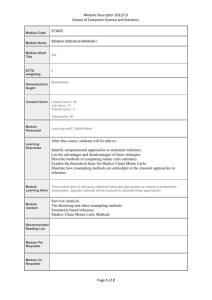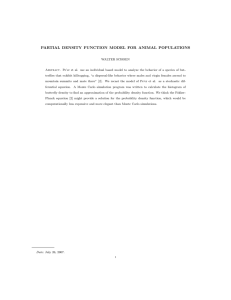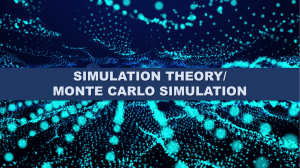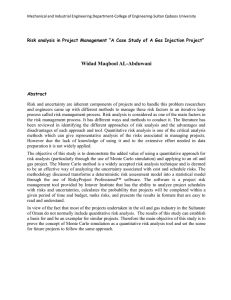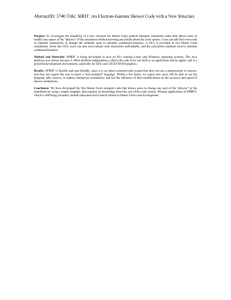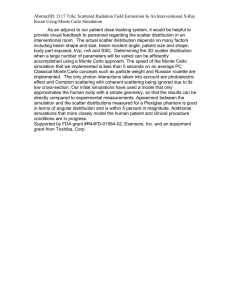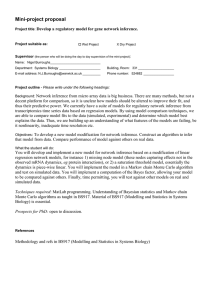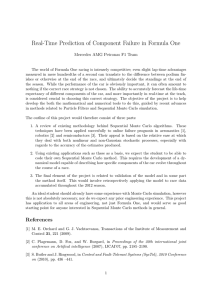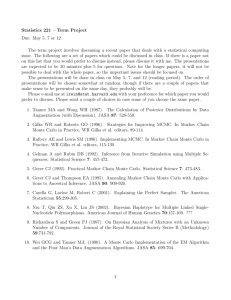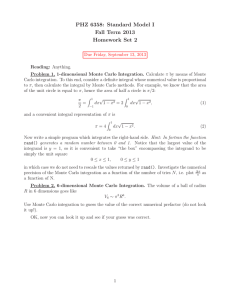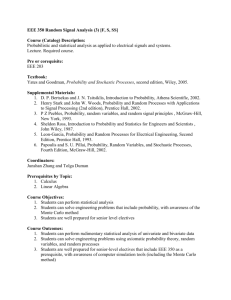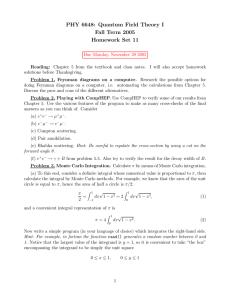Statistics 405 - University of Missouri
advertisement
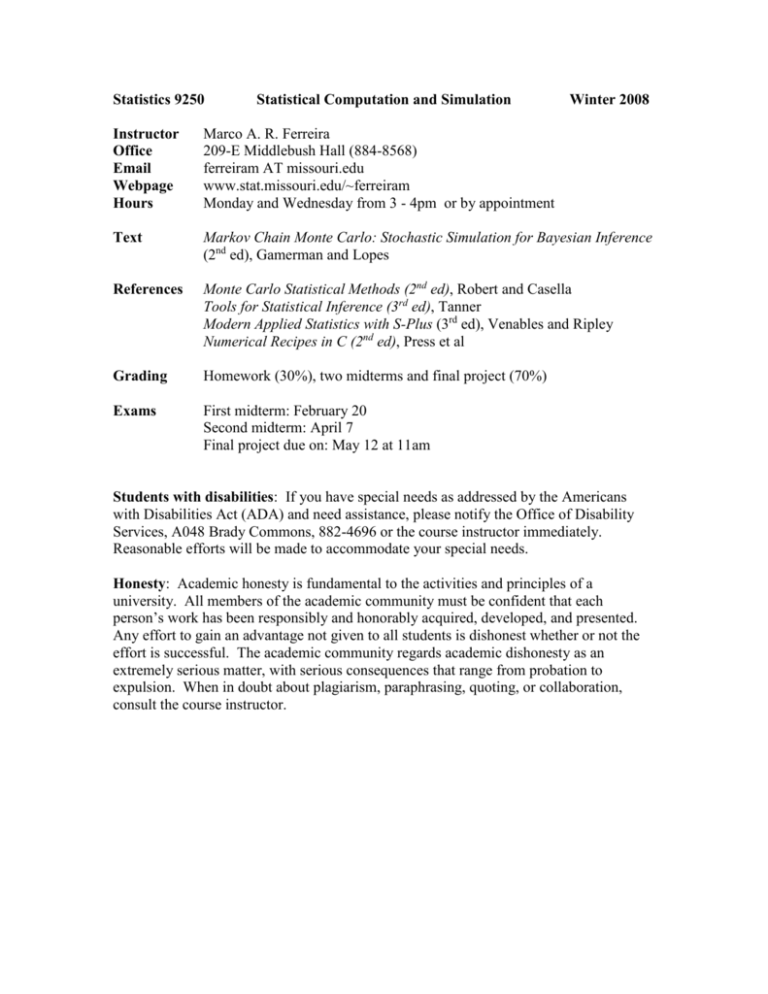
Statistics 9250 Statistical Computation and Simulation Winter 2008 Instructor Office Email Webpage Hours Marco A. R. Ferreira 209-E Middlebush Hall (884-8568) ferreiram AT missouri.edu www.stat.missouri.edu/~ferreiram Monday and Wednesday from 3 - 4pm or by appointment Text Markov Chain Monte Carlo: Stochastic Simulation for Bayesian Inference (2nd ed), Gamerman and Lopes References Monte Carlo Statistical Methods (2nd ed), Robert and Casella Tools for Statistical Inference (3rd ed), Tanner Modern Applied Statistics with S-Plus (3rd ed), Venables and Ripley Numerical Recipes in C (2nd ed), Press et al Grading Homework (30%), two midterms and final project (70%) Exams First midterm: February 20 Second midterm: April 7 Final project due on: May 12 at 11am Students with disabilities: If you have special needs as addressed by the Americans with Disabilities Act (ADA) and need assistance, please notify the Office of Disability Services, A048 Brady Commons, 882-4696 or the course instructor immediately. Reasonable efforts will be made to accommodate your special needs. Honesty: Academic honesty is fundamental to the activities and principles of a university. All members of the academic community must be confident that each person’s work has been responsibly and honorably acquired, developed, and presented. Any effort to gain an advantage not given to all students is dishonest whether or not the effort is successful. The academic community regards academic dishonesty as an extremely serious matter, with serious consequences that range from probation to expulsion. When in doubt about plagiarism, paraphrasing, quoting, or collaboration, consult the course instructor. Syllabus I. 1. 2. 3. 4. II. Numerical optimization 1. Standard methods 2. EM algorithm 3. Simulated annealing III. 1. 2. 3. 4. Approximate methods of inference Laplace approximation Gaussian quadrature Importance sampling Monte Carlo integration 1. 2. 3. 4. Markov chain Monte Carlo Gibbs sampling Metropolis algorithm Metropolis-Hastings algorithm Convergence diagnostics IV. V. Stochastic Simulation Generation of discrete random quantities Generation of continuous random quantities Generation of random vectors and matrices Acceptance/rejection methods Further topics 1. Computation of marginal likelihood 2. Reversible jumps 3. Convergence acceleration
